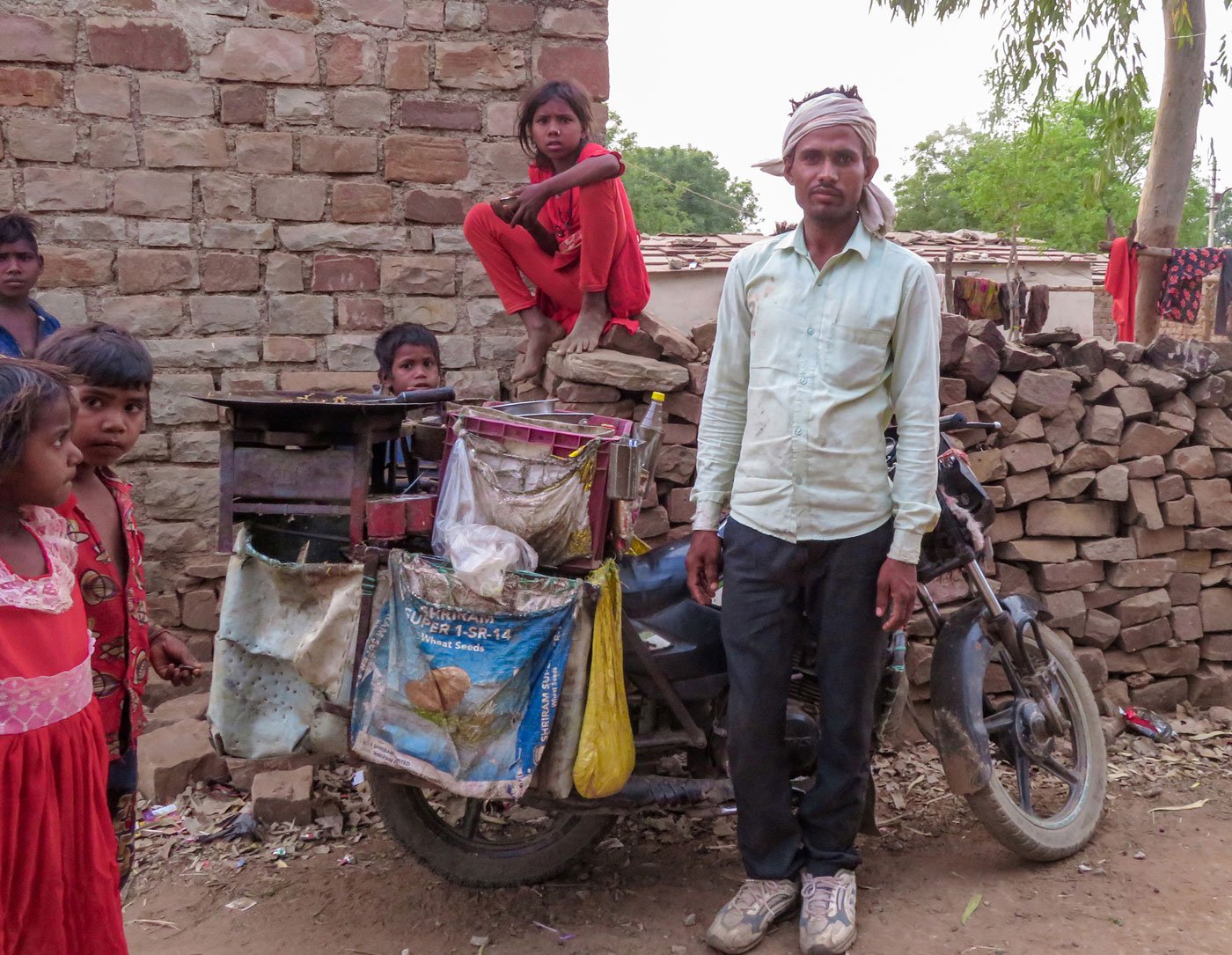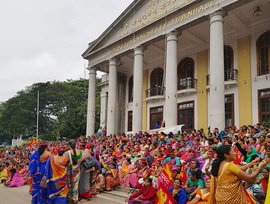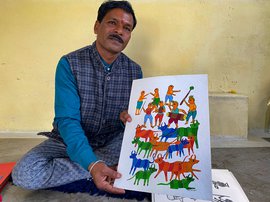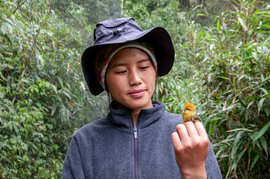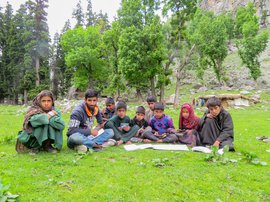As Ram Avatar Kushwaha enters Aharwani, he slows down to manoeuvre the mud roads on his motorcycle. He reaches the rough centre of the hamlet and switches off the engine of his 150cc bike.
In about five minutes, toddlers, mid-schoolers and teenagers start congregating around him. The bunch of Sahariya Adivasi kids wait patiently, chatting among themselves, holding coins and clutching notes of 10 rupees in their hands. They are waiting to buy a plate of chow mein, a dish made of stir-fried noodles and vegetables.
Aware that this well-mannered hungry clientele will soon get restive, the motorbike vendor is quick to unpack. There isn’t much – he pulls out two plastic bottles, “one is a red sauce [chilly] and one is a black one [soya sauce],” he explains. Other goodies include a cabbage, peeled onion, green capsicum and boiled noodles. “I buy my supplies in Vijaypur [town].”
It’s nearly 6 p.m. and this is the fourth village that Ram Avatar has visited today. He reels off the names of other hamlets and villages he routinely visits – Ladar, Pandri, Khajuri Kalan, Silpara, Parond – all within a 30 kilometre radius of his home in Suttaypura, a hamlet attached to Gopalpura village in Vijaypur tehsil . The only other ready snacks available in these hamlets and small villages are packaged chips and biscuits.
He comes here to Aharwani, an Adivasi-dominated hamlet of around 500 people at least 2-3 times a week. Aharwani is a recent settlement – its residents are those who were displaced from the Kuno National Park in 1999 to make it an inviolate second home for lions. Read: In Kuno: Cheetahs in, Adivasis out . No lions have come, but cheetahs from Africa were moved into the park in September 2022.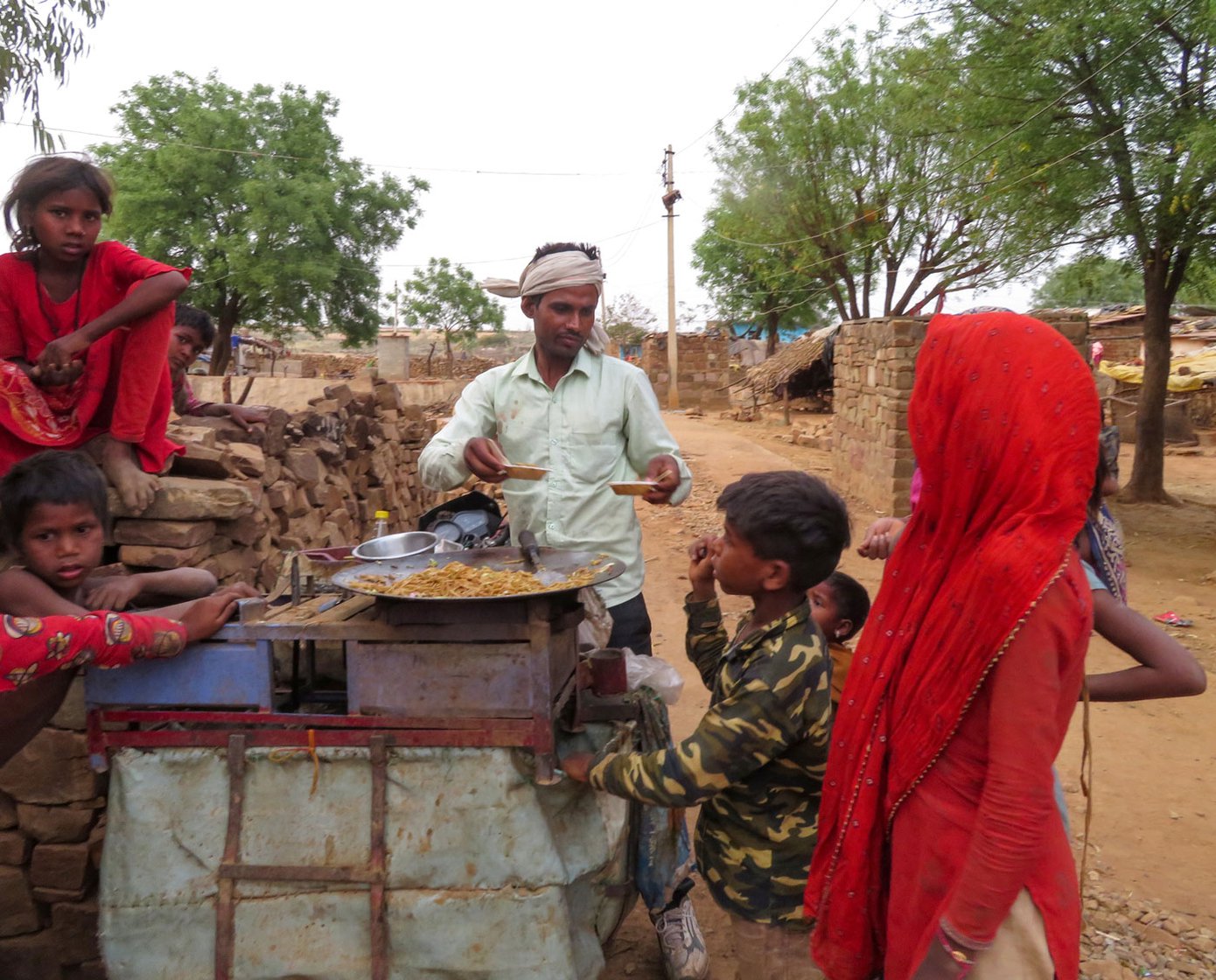
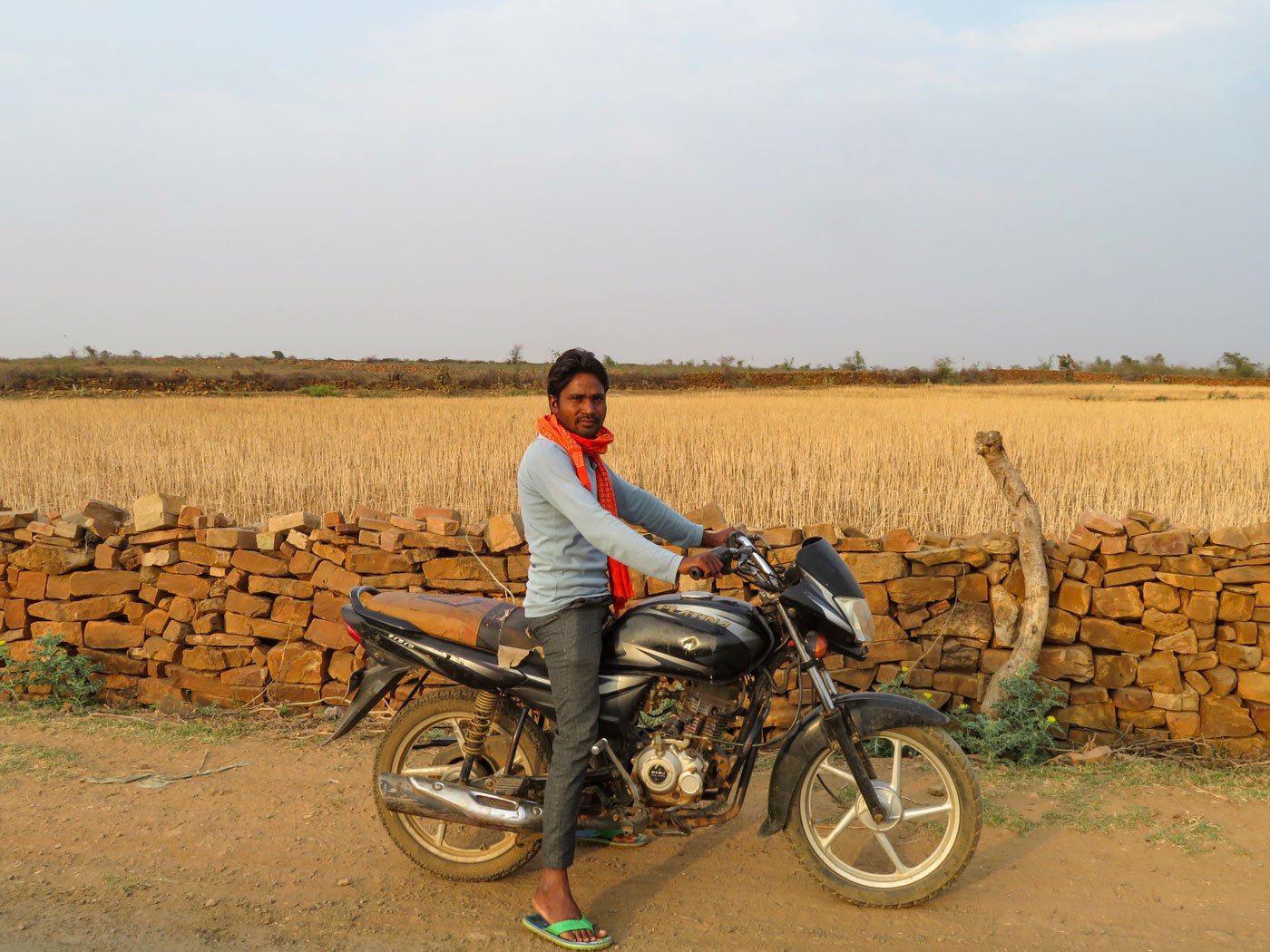
Left: Ram Avatar making and selling vegetable noodles in Aharwani, a village in Sheopur district of Madhya Pradesh. Right: Aharwani resident and former school teacher, Kedar Adivasi's family were also moved out of Kuno National Park to make way for lions in 1999
Most of the children standing around said they attend the local government school right here in Aharwani, but Kedar Adivasi, a resident, says that though children are enrolled, they don’t learn much. “Teachers do not come regularly and when they do come, they do not teach anything.”
The 23-year-old Kedar was a teacher at the Aadharshila Shiksha Samiti, a non-profit that runs a school for children of the displaced community in village Agara. “When students pass out of middle school here, they are not able to make progress in other schools because of the lack of basic education like reading and writing,” he said when speaking to PARI in 2022.
Sahariya Adivasis are a Particularly Vulnerable Tribal Group (PVTG) in MP, and have a literacy of 42 per cent, says this 2013 report, Statistical Profile of Scheduled Tribes in India .
The crowd is becoming restless so Ram Avatar stops talking to us and concentrates on his cooking. He starts up the kerosene stove, and squirts some oil from a bottle onto the 20-inch wide frying pan fixed to it. He takes out the noodles from a box below and tosses them into the hot oil.
The seat of his bike is convenient for chopping the onions and cabbage. He pushes the sliced onions into the pan and its delicious aroma fills the air.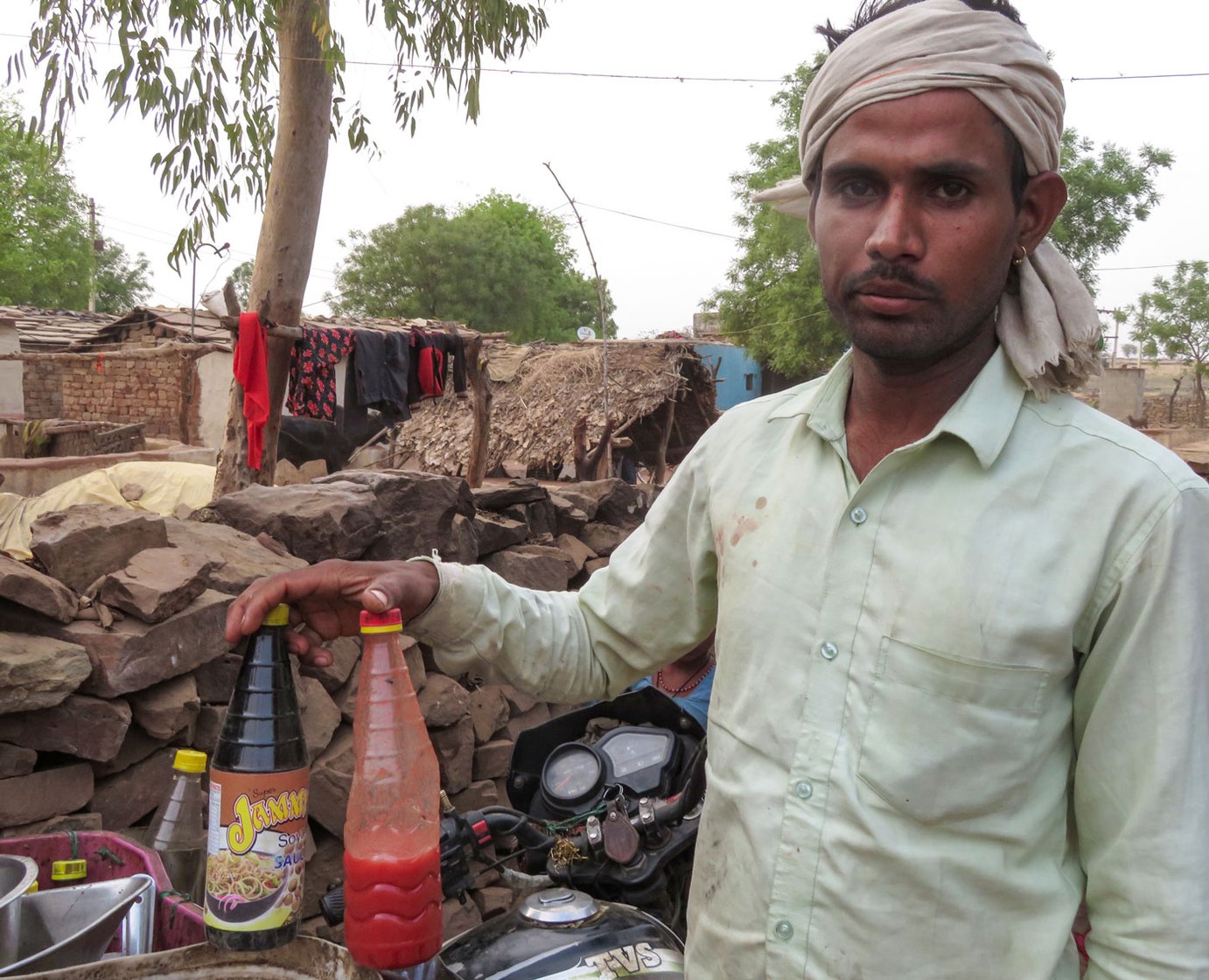
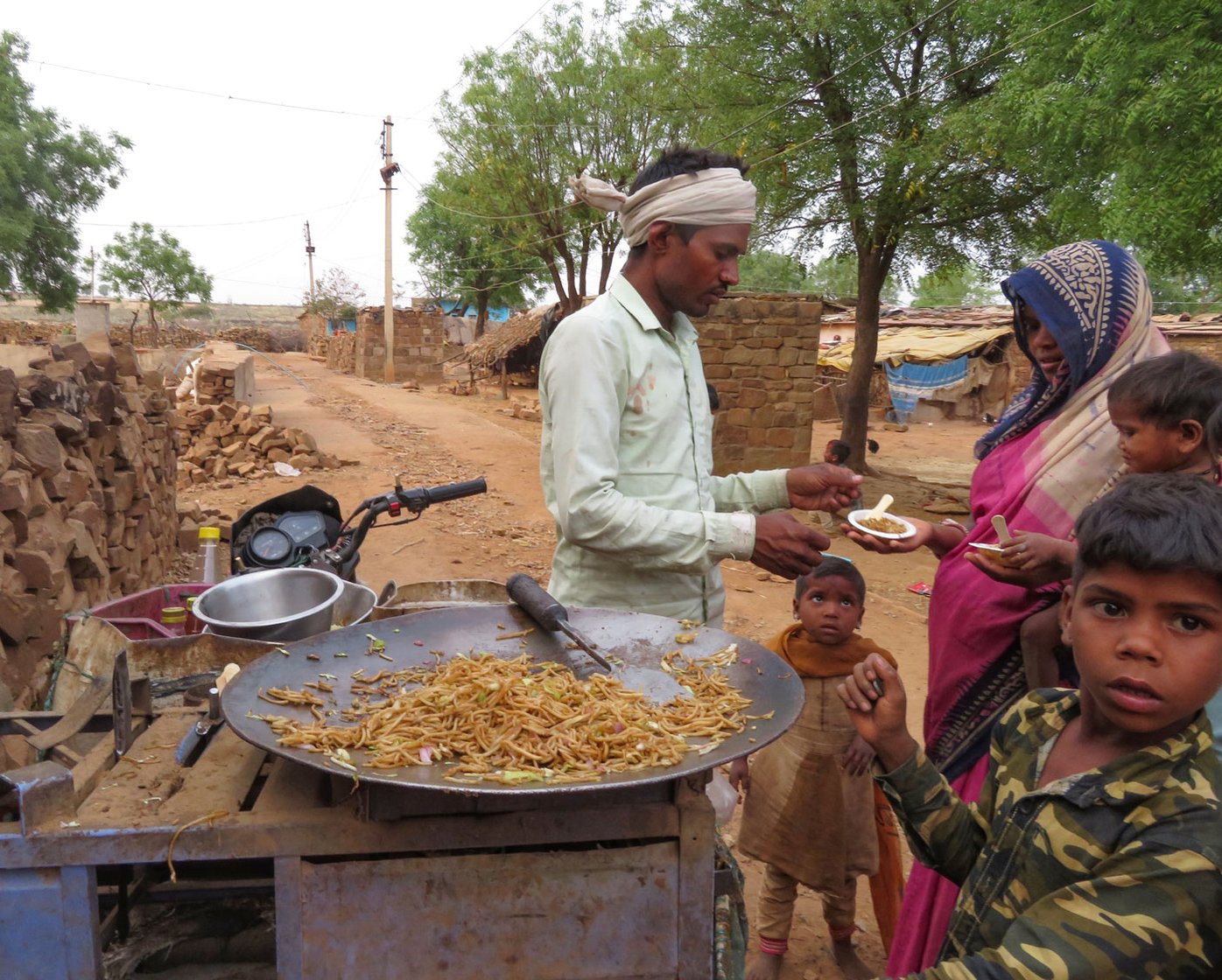
The motorcycle carries all the supplies and a small stove which is fired up to fry the noodles and vegetables. A couple of sauce bottles, onions, cabbage and the odd carrot are used
Ram Avatar is a Youtube cook. He was a vegetable vendor but, “that is very slow business. I had seen a video of how to make chow mein on my phone and decided to give it a try.” That was in 2019 and he hasn’t stopped since then.
When PARI met him in 2022, he was selling a small bowl of chow mein for Rs. 10. “I can sell roughly 700-800 [rupees] worth in a day.” From this he estimates he can make Rs. 200-300 as his earnings. A 700gm pack of noodles costs him Rs. 35 and he uses up to five packets a day; the other big expenses are the kerosene for the stove, the oil for cooking and the petrol for his bike.
“We have three bighas of land but we hardly earn anything from it,” he said. He shares the agricultural work with his brothers and they grow wheat, bajra and mustard for their own consumption. Ram is married to Reena and they have four children all below the ages of 10, three girls and a boy.
Ram Avatar bought his TVS motorcycle over seven years ago and turned it into a mobile kitchen four years later – in 2019, festooned with bags carrying supplies. Today he says he travels up to 100 kilometres in a day selling the food he dishes out to his mostly young buyers. “I like doing this. I will continue for as long as I can.”